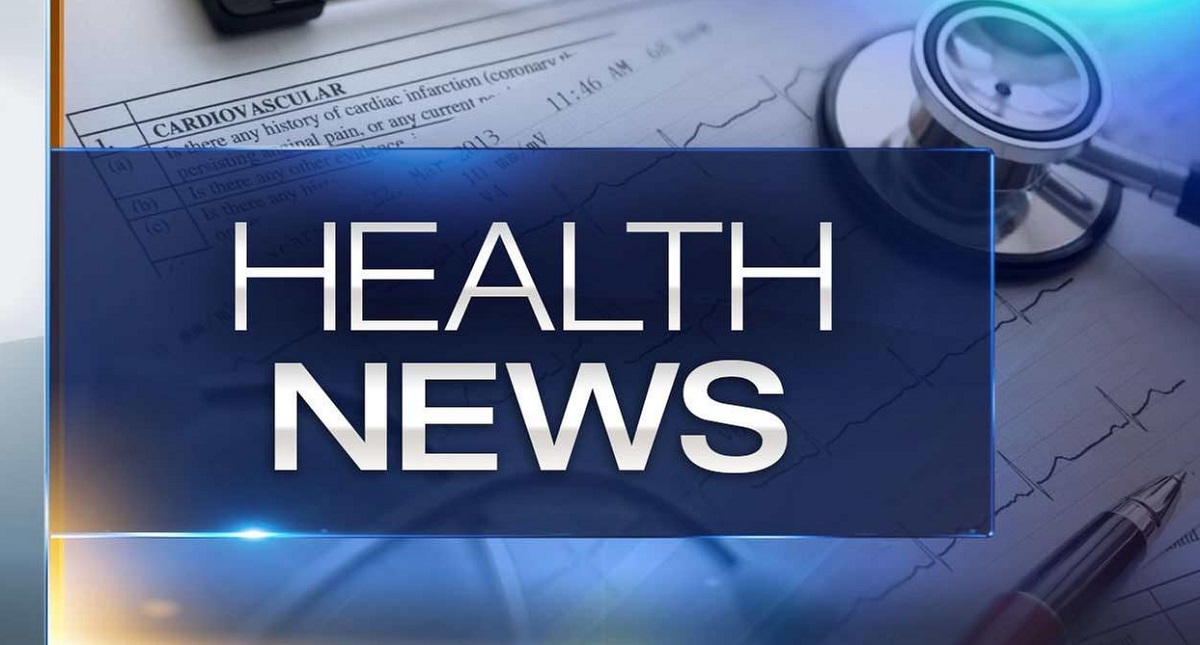Flu, Colds Increasing as COVID-19 Restrictions Are Eased: Here Are the Symptoms for Each Illness

Flu, Colds Increasing as COVID-19 Restrictions Are Eased: Here Are the Symptoms for Each Illness
Many health officials expect influenza and cold cases to increase this fall and winter as COVID-19 safety protocols are eased.
Experts note many symptoms for the flu and COVID-19 are similar, including fever and body aches. However, breathing difficulty is more common with COVID-19.
Health officials say that if you’re not feeling well, you should isolate, hydrate, and get tested.
Remember the flu?
Seasonal influenza cases were rare last winter and experts credit COVID-19-related physical and social distancing and mask-wearing for keeping rates low.
With COVID-19 restrictions easing, however, the flu is expected to make a comeback.
That could make it harder to tell whether that irritating cough, congestion, or fever is only a cold, the flu, or something worse.
“Droplets spread viruses like the flu, COVID-19, or things like RSV (respiratory syncytial virus) in the air,” Dr. Phil Mitchell, an emergency room physician and chief medical officer at DispatchHealth, told Healthline. “The steps we took to avoid the spread of COVID-19 with masks, social distancing, good hand hygiene is universal prevention for all respiratory viruses. Because we practiced unprecedented levels of protection, resulting in almost no flu, some health experts speculate we lack some natural immunity, and flu may come back this fall with a vengeance.”
During the 2019-2020 influenza season, an estimated 38 million peopleTrusted Source in the United States became ill with the flu, according to the Centers for Disease Control and Prevention (CDC).
Between September 27, 2020, and April 24, 2021 — a span that included the peak of the COVID-19 pandemic — only 2,038 flu cases were reported to the CDC.
But some research suggests that diseases such as the flu are poised to return in 2021-2022.
For example, the CDC recently reported that cases of RSV, which declined sharply after April 2020, are climbing back up again in the southern United States, where COVID-19 precautions have largely been lifted.
RSV is the most common cause of bronchitis and pneumonia among infants and is especially dangerous among young children and older adults.
“After a worldwide drop in influenza cases and the lowest rate on record in the United States during the pandemic, we should all expect to see more flu in the coming fall and winter,” Dr. David Cutler, a family medicine physician at Providence Saint John’s Health Center in Santa Monica, California, told Healthline. “So, it will be very important for everyone to get their flu vaccines. And since there was so little flu last year, we really don’t know the impact that COVID and influenza might have together. So, it remains critically important that as many people as possible get immunized against COVID as well.”
Comparing symptoms
RSV causes flu-like symptoms, and many of the symptoms of the flu are likewise similar to those caused by COVID-19 infections, including fever, cough, body aches, sore throat, fatigue, and congestion.
The delta variant of COVID-19 may present with symptoms even more commonly associated with the flu or common cold, including headache, sore throat, and runny nose — which were not typical among people with previous strains of the novel coronavirus.
Symptoms that seem fairly unique to COVID-19 are breathing difficulties and loss of taste or smell, although not every person who develops COVID-19 experiences these symptoms.
Fever is rarely a symptom of the common cold but is common among people with COVID-19, flu, and RSV.
“Symptoms of the flu and COVID are almost identical, which is why testing is critical. It’s the only way you’ll know,” said Mitchell, whose company provides at-home testing for COVID-19, the flu, and other illnesses. “It is possible to have both COVID-19 and the flu.”
“My advice, if you start feeling run-down and not well [you should] isolate, hydrate, and get tested,” he added.
Typical symptoms of COVID-19Trusted Source include:
fever or chills
cough
shortness of breath or difficulty breathing
fatigue
muscle or body aches
headache
loss of taste or smell
sore throat
congestion or runny nose
nausea or vomiting
diarrhea
Typical symptoms of influenzaTrusted Source (the seasonal flu) include:
fever or feeling feverish/chills
cough
sore throat
runny or stuffy nose
muscle or body aches
headaches
fatigue
vomiting and diarrhea (more common in children than adults)
Typical symptoms of the common coldTrusted Source include:
sore throat
runny nose
coughing
sneezing
headaches
body aches
Typical symptoms of RSVTrusted Source include:
runny nose
decrease in appetite
coughing
sneezing
fever
wheezing
Read More : Why People with Cancer Should Be in COVID-19 Vaccination Trials
Since the COVID-19 vaccine clinical trials began, people being treated for cancer and those who have survived the disease have been largely excluded.
Two prominent cancer organizations are now insisting this must change.
In a joint statement, the American Society of Clinical Oncology (ASCO) and Friends of Cancer Research (FCR) announced that individuals with active cancer or a history of cancer must be made eligible for COVID-19 vaccine trials unless there is a safety justification for exclusion.
“We’ve learned that patients with cancer are especially vulnerable to severe illness, hospitalization, or death due to COVID-19,” Dr. Everett E. Vokes, president of ASCO, said in the joint statement.
“However, since clinical trials for COVID-19 vaccines have largely excluded patients with cancer, we still have a long way to go to better understand how safe and effective COVID-19 vaccines are for patients in active treatment,” he added.
Dr. Julie Gralow, chief medical officer of ASCO and a medical breast cancer oncologist for 30 years, told Healthline that there is a great need to learn more about how cancer and the novel coronavirus interact.
“Early in the development of the vaccines, it, of course, made sense to try to get healthy population to start within these trials,” Gralow said.
“But once you have positive signals, once you have locked that in, it is supercritical to adjust eligibility in subsequent trials or expand cohorts to more vulnerable and underserved populations, including those who are not healthy,” she added.
Gralow said that because these trials to date enrolled narrower, more homogenous patient populations, many of the most vulnerable and underserved people don’t know if the vaccines are safe or effective for them.
She said ASCO has begun to collect data over the past couple of months on people with cancer and the COVID-19 vaccines.
“The vast majority, including patients with solid tumors, have good immune responses to the vaccines,” Gralow said. “But we are finding high-risk populations, including in hematological malignancies: B cell malignancies, lymphoma, multiple myeloma. Some of them have a response, but they are generally at lower levels.”
People with blood cancers who are being treated with the drug Rituxan have particularly low response rates to the vaccine, according to Gralow.
“It’s not zero. But it’s low,” she said. “We are also seeing this with CAR-T cell immunotherapies and stem cell transplants. But in regular chemo, we have not seen any big problems.”
The importance of trial access
Gralow noted that ASCO’s statement is simply a continuation of the organization’s outreach this past year to underserved populations.
“We are using this statement mainly to remind people that we need to be inclusive, we need to make sure we are adding various underserved racial populations, for example, and older populations to clinical trials, and others who have been underrepresented,” she said.
Dr. Erin Reid, a hematologist and professor of medicine at Moores Cancer Center at UC San Diego Health (UCSD), agrees with the ASCO/FCR position.
“Formally studying the safety and benefits of SARS-CoV-2 vaccination in individuals with cancer is desirable on many fronts, and I agree with the ASCO/Friends of Cancer Research joint statement,” she said.
Reid said UCSD and many other institutions have been participating in the CCC-19 registry, which follows outcomes in people with cancer who developed COVID-19.
“There is probably a lot of variability between different individuals with cancer and response to vaccines — even among people who received the same treatment for the same cancer,” Reid said. “Bottom line: Some immune protection is better than none.”
Vaccination of someone who is immunocompromised is likely to provide reduced severity of COVID-19 if that person is exposed to SARS-CoV-2 after vaccination, Reid concluded, but “the degree of protection compared to someone with a normal immune system is not known.”

Myths about muscular girls
- Weight lifting should do under proper guidance of a trainer otherwise you will end up harming yourself. You should gradually increase your weight.

different consequences of drug use
- Ghamkol Decent Rehab Centre is the Best Rehabilitation Center in Lahore. An ideal place to get treated for alcohol, drug

what to do if husband is a drug addict ?
- Ghamkol Decent Rehab Centre is the Best Rehab Center in Lahore. Our services include but not limited to bipolar schizoph

Organic Yeast Market Size, Future Growth Strategies, Top Key Players 2027
- Organic Yeast Market is expected to reach the market valuation of US$ 699.3 Million by 2027 expanding at a reasonable CAGR of 9.04%